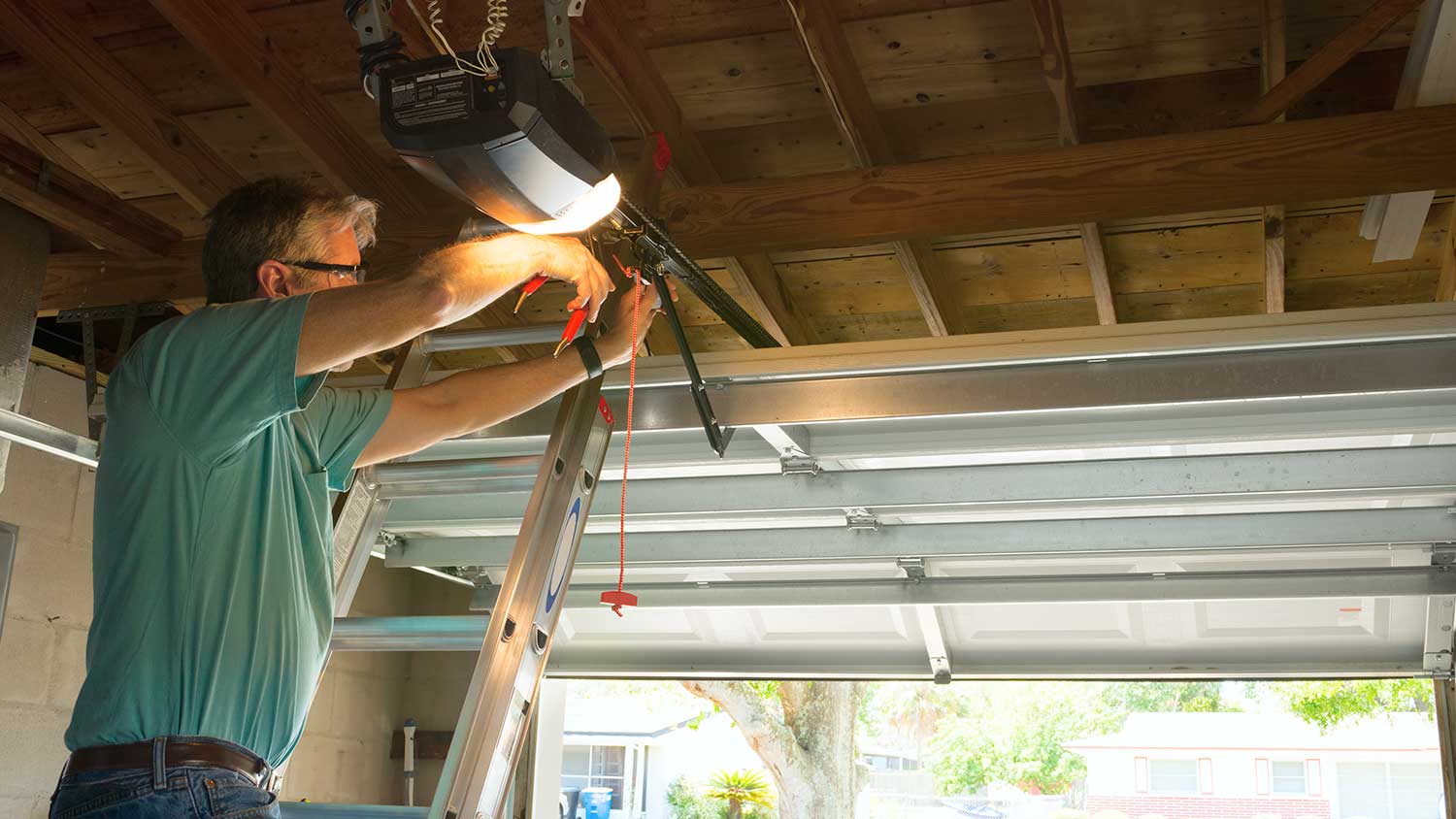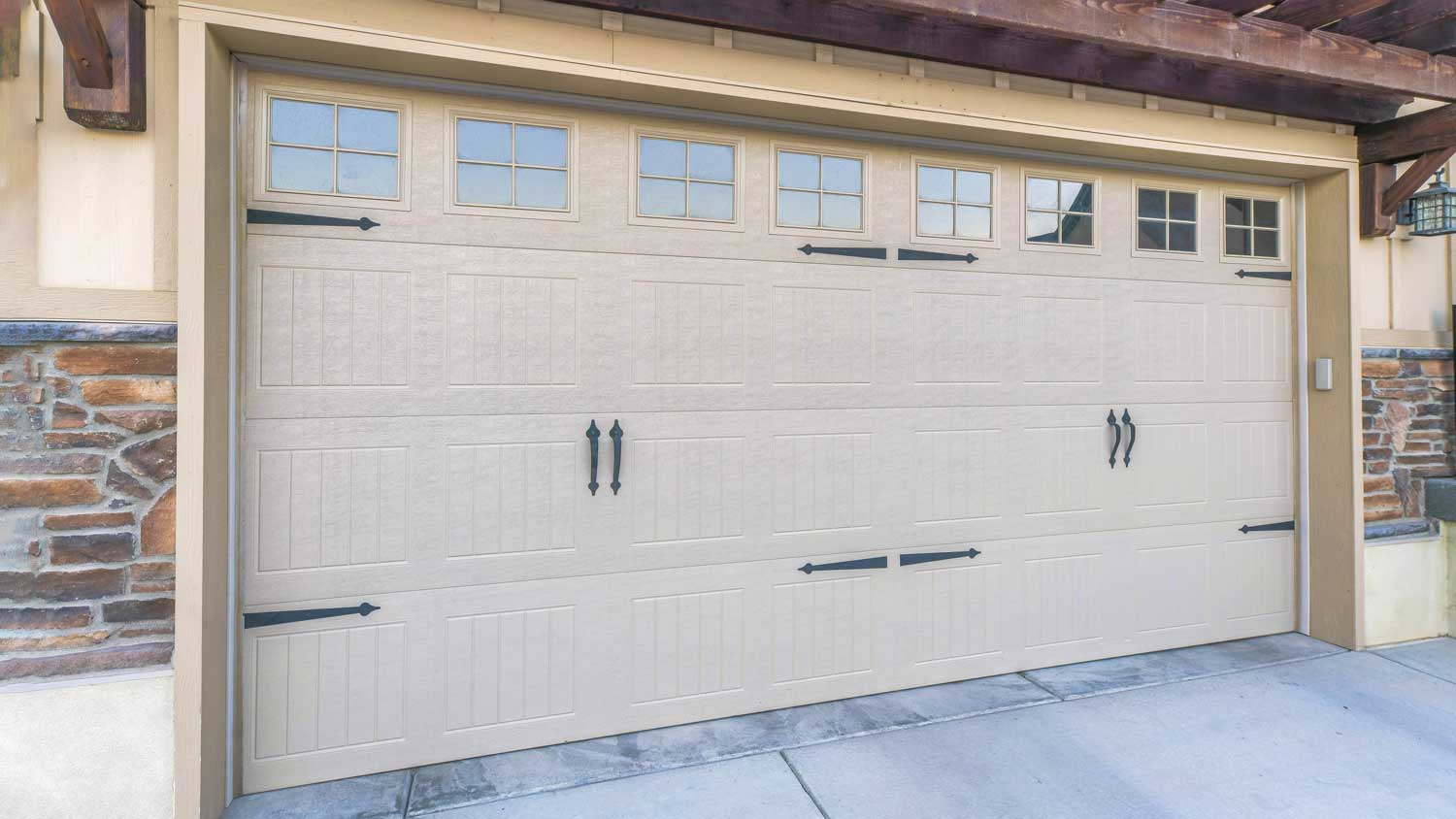6 Common Garage Door Repair Scams—and How to Avoid Them
Send garage door scam artists back to the drawing board
.jpeg?impolicy=leadImage)
.jpeg?impolicy=leadImage)
Most garage door repair companies are reputable and perform quality work at fair prices.
Avoid common scams by thoroughly reading any contract before signing and getting a second opinion when told you need exorbitant and costly repairs.
Be wary of any low prices that seem too good to be true, as they'll likely include hidden fees and markups.
Be aware of any "lifetime guarantee," and always ask whether this guarantee covers both parts and labor.
A garage can be a storage area, recreation center, and workshop all in one, but it's nothing without a working door. Anxiety and desperation abound when the garage door malfunctions, allowing nefarious scammers to pop out of the woodwork and into your bank account. To be clear, most local garage door repair companies are pros who provide quality service at a fair price. The odd scammer does exist, though, so here are some common scams and upsells to look out for.
1. The Rebuilding Package Scam
This is the upsell to end all upsells. The rebuild package scam will start with an innocuous service visit and end with a recommendation that you replace every single part of your garage door. No matter the underlying issue plaguing your garage door, the technician will suggest you replace the torsion springs, rollers, cables, bearing brackets, and even the motor itself. Even worse? All replacement parts will be sold at a serious markup, with these advanced costs hidden in the fine print of your repair contract.
How to avoid this scam: Knowledge is your best friend here. It’s highly unusual for every garage door component to wear out at the same time. Many garage door parts last 10 to 15 years before wearing down, so if your door is five years old and given a death sentence, something ain’t right. Trust your instincts, and don’t hesitate to call in another pro for a second opinion. Of course, there’s a time to purchase a new garage door, but don’t let anyone force you into pricey upsells.
2. The Lifetime Guarantee Scam
Lifetime guarantees sound great in theory, but they aren't all created equal—and some are a serious waste of money. The words "lifetime guarantee" sound so official and reliable, but what does "lifetime" mean, and what does this guarantee cover in the first place? A homeowner's instinct is to assume coverage no matter what happens, but many of these guarantees cover parts and not labor, allowing the scammy issuer to take you for a ride down the road. The worst con artists will purposefully install cheap parts that fail again and again, necessitating labor call upon labor call.
How to avoid this scam: Don't sign anything before thoroughly reading it and asking for clarifications. Bring the contract to a lawyer or someone who makes sense out of legalese if you have the resources. If the attorney suggests additional coverage but it's not in the agreement, ask the garage repair pro to amend the contract. If they seem uneasy about adding requested stipulations to the guarantee, move on to the next and save yourself from future headaches.
3. The Unidentified Subcontractor Scam

This scam will start with promises of quality service from the company you initially contacted. However, the actual repair will fall to a stranger, an independent subcontractor with no official ties to the company you've been communicating with. This person, though well-intentioned, will likely lack a work license, necessary insurance, and the kind of experience needed to complete the job. Even worse? You'll have no way to get in touch with them if something goes wrong.
How to avoid this scam: Clear communication is key here. Ask for details as to who will be completing the repair work at the point of initial contact. Subcontracting particular tasks is a regular industry practice, but get their information ahead of time and check on licensing experience and insurance. When the workers show up at your garage door, look for identifying markings (such as company logos) on the van or truck. Also, ask for an introduction before they begin working.
4. The Unbelievably Low Prices Scam
Average garage door repairs cost anywhere from $150 to $350, so be especially wary when you encounter advertisements for unbelievably low garage door maintenance prices. If your garage door breaks and you perform a simple web search, you’ll likely find companies advertising prices as low as $19.99. But who could send a technician to your home, supply replacement parts, and perform intensive labor for that price? Scammers will ask for payment upfront and add on all kinds of hidden fees and markups. Some shady companies will even include bogus "coupons" on their website to ensnare customers in this web of financial despair.
How to avoid this scam: Research your specific garage door repair issues and come up with some average prices in your area. If the quote is well-below this average, contact the company directly and ask pointed questions. Also, don’t pay for the job upfront unless it’s just a small down payment of around 10% to 20% of the total price.
5. The Imaginary Company Scam
This is a cousin to the unidentified subcontractor scam, but perhaps even more sinister. Whereas with the former, a garage door company will farm out work to unqualified subcontractors, in this case, the original company may not even exist.
Sure, they’ll send someone out to do the work, but everything else about the company will be a bald-faced lie. The website could have a fake company name, and the phone number could go out of service at the drop of a hat. In some cases, disreputable companies will pretend to be more qualified organizations, stealing their branding and other key identifiers. More often than not, these companies will lack appropriate licenses, insurance, and experience.
How to avoid this scam: Pay attention to all contact information and branding when instigating your initial communication. Do the web addresses, business cards, email addresses, and phone numbers match, or do they all lead to different company names? Also, perform a web search to locate the company’s physical headquarters. If none exists, put on your scam sensors.
6. It’s an Emergency Scam
The "It’s an Emergency" scam takes advantage of homeowners who are in desperate need of repair services—ASAP. Scammers target these homeowners by advertising their emergency repair services, then inflate the amount of work that needs to be done or the parts needed for repair. They think they can get away with this unscrupulous activity because you’re distressed and in need of immediate help.
How to avoid this scam: Most garage door repair companies can expedite repairs; you’ll just need to ask. We also advise that you get at least three quotes from three different highly-rated or recommended companies so you can compare the damage assessed as well as the cost. Finally, make sure that all the companies you contact are listed with the International Door Association.





- How to Avoid Tree Service Scams
- What to Do if You Backed Into Your Garage Door
- How to Avoid Carpet Cleaning Scams
- Why Your Garage Door Opens a Little and Then Stops
- How To Build A Garage: Full Guide from Planning to Finish
- Who Do You Hire to Fix or Install a Garage Door?
- How to Open a Garage Door Manually From the Inside or the Outside
- What Are All the Parts of a Garage Door?
- 6 Reasons to Avoid DIY Garage Door Installations
- Protect Yourself from These Common Carpet Scams










